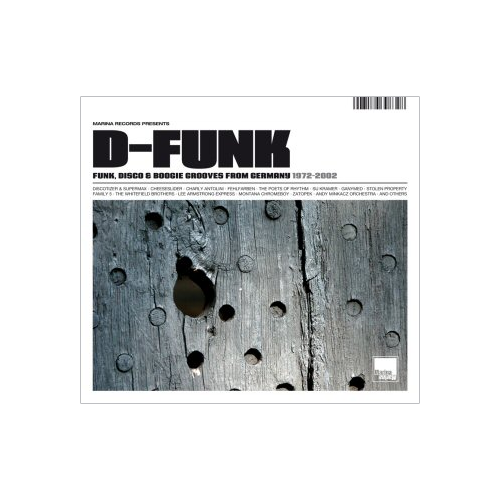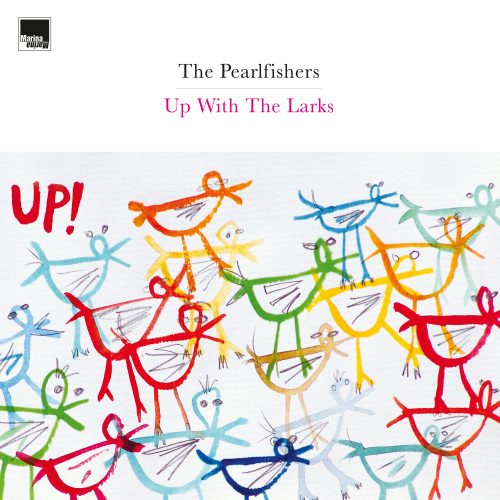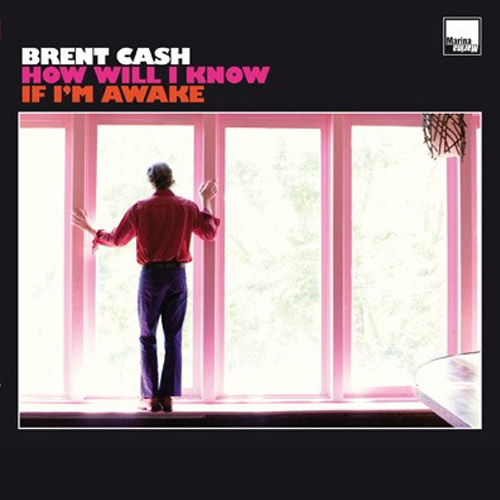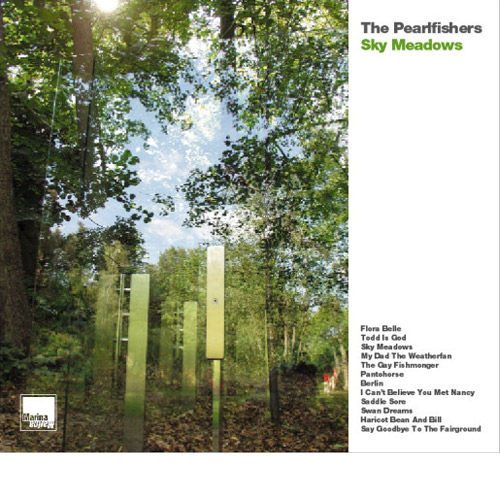Artist: Various Artists
Title: D-FUNK – Funk, Disco & Boogie Grooves From Germany 1972-2002
Format: CD
Label: Marina Records
Release date: September 25, 2009
Various Artists – D-FUNK CD
€15,00
Description
01. Discotizer & Supermax : Stop Talking Bull
02. Boney M. : Dancing In The Streets
03. Veronika Fischer & Band : Kirschblüte
04. Cheeseslider : Sweatmajor
05. Charly Antolini’s Power Dozen : Jumping
06. Fehlfarben : 14 Tage
07. Zatopek : Dispo Funk
08. The Poets Of Rhythm : Plus Plus
09. Ganymed : Future World
10. James Last : Bolero ‘75
11. Andy Minkacz Orchestra : Intercontinental Meetings
12. Stolen Property : Low Rider
13. The Whitefield Brothers : Rampage
14. Family 5 : Bring Deinen Körper Auf Die Party
15. Lee Armstrong Express : Chicken N Waffles
16. Twen : Die 24 Stunden Von Le Mans
17. Su Kramer : Magic Dance
18. Montana Chromeboy : War On The Bullshit
Compiled by Stefan Kassel
Mastered by Bo Kondren @ Calyx
Liner notes by Sir André Luth Webber
Compilation produced by Stefan Kassel & Frank Lähnemann
Design & photography by Stefan Kassel / www.stefankassel.com
Release date: September 25, 2009 (MA 74)
Additional information
| Weight | 0,100 kg |
|---|
Liner notes
Liner notes by Sir André Luth Webber
D-Funk – what’s in a name?! Let’s analyse this. I give you three words: Deadly! Defunkt! Deutschland! In other words: 30 years of teutonic Funk.
You gotta salute the lads at Marina for making your mind dance to an album title alone! Pretty sure your ass is gonna follow upon switch-on. But while I have your attention, dig this: There are certain individuals who will go so far as to assume that there’s always been a void of funk in the deep forests and them foggy hills in the heartland of old Europe. Wrong. It may be an unknown and as yet unexplored territory, but some Krauts certainly knew how to cook up a serious groove and put the D into Funk.
Which leads us to our opening blast: Kurt Hauenstein aka Supermax – in fact a born Austrian – is the super-kool maestro behind the 70s’ most orgiastic funk romp “Love Machine” (featured on Marina’s “Disco Deutschland Disco” compilation). In the year 2000 – after years of exiled stardom in the Eastern Bloc – he became collabo object numero uno for Hamburg’s freak-out rap combo Fünf Sterne Deluxe, a zonked-out foursome beloved in the outernational funk zone between Iceland, Japan, and the hip hop galaxy. In unison with the long-haired pimp from Vienna, they gave Clinton’s stranded mothership an overhaul under the pseudonym Discotizer. “Stop Talking Bull” is all things Bootsy’s “Body Slam” was in ‘82 – de-frozen for the year 3000. A straight-shootin’, razor-totin’ slice of fun & fuck off – the definition of pure, uncut funk. Welcome to cyber wars!
When the same Mr. Hauenstein played bass on Germany’s US army base circuit during the 70s, he met Frank Farian at his Frankfurt studio. Farian hired Hauenstein on the spot for his rep as “Mr. First Take”, and he got lucky, since Kurt knew the American musicians’ lingo perfectly. Hauenstein eventually ended up casting Boney M. with Farian. It was the start of an incredible success story. Undoubtedly the featured track here was chosen by the fellas at Marina to piss off the purists – and then to serve a loose caboose Miami funk tune in the vein of KC and his sunshine-y band. Addictive stuff, I’m tellin’ ya! Hidden on the flip-side of their 1978 best-selling Christmas single “Mary’s Boy Child”, this non-album gem will literally have you “Dancing In The Streets”.
Three years earlier – in another Germany – a beast from the East came to life. Veronika Fischer’s super-rare 7” single “Philodendron” (re-issued on “Disco Deutschland Disco”) took her away from all her previous pop musings straight onto the disco dancefloor doing “The Hustle”. Producer/writer/keyboardist Franz Bartzsch convinced East Germany’s No. 1 singer to keep her lips sealed for the funky b-side “Kirschblüte” (Cherry Blossom). It musta been a heavy task, but he pulled it off. And no, these funky brickhouse builders are not, I repeat n-o-t, the Commodores lost in Leipzig. But they sure smoke like a gang from Alabama.
Now that we’ve visited two Germanies, let’s make sure that we don’t forget the third one. You’re readin’ right. In a complete parallel universe that existed in and around US military bases in the West, a group of young future funkateers in the town of Giessen (30 minutes north of Frankfurt) was raised on a diet of Sly Stone, Parliafunkadelicment, and Ike without Tina. We’re talking nasty, ultrakool funk skool here. Hubertus “Montana Silva” Cunz, Arne “Chromeboy” Diedrichson (today a happening producer for German band Fettes Brot), Danny “Ray” Gahn, and Christian “Hessenmob” Roth became Cheeseslider and changed quantum physics forever. Get the Shuggie Otis in-joke when they wail out “transpiration information” in their ode to number one fan/friend “Sweatmajor”, a doo-wah ditty saddled with all the slap Larry Graham gave ’em. Hallelujah.
Swiss-born sticksman extraordinaire Charly Antolini had paid his dues in big bands by Erwin Lehn, Max Greger, and the Norddeutsche Rundfunk (North German Radio) before getting nu-clear vision by metaphorically bathing his kit in toxic waste. Hence “Atomic Drums” was born, a sound so vital even Homer Simpson would stay awake at work in the plant – wigglin’ and a-poppin’! Recorded by top-notch engineer Willie Schmidt at Munich’s Trixi Studio in 1972, this music put some funk back into wanky 70s fusion – relying on the beat, not some silly improvisations. Collaborators included Max Greger Jr. on organ, Harry Winkler on guitar, and producer/arranger/composer Eric Thöner on keys – all complementing super-drummer Antolini showing off skills he learned in the Buddy Rich and Louis Bellson university of thump.
Now let’s move to Dazzledorf, as pop art artist Charles Wilp refered to his hometown Düsseldorf on the river Rhine. A place where modern art, punk rock, and football fandom flourished beyond Kraftwerk and Joseph Beuys. Best example: A gang of modernists comprising dual bands Fehlfarben and Family 5 (the latter also on this platter). Just like in the UK and across the Atlantic, German punk bands took the quasi-fascist burning of disco records in the USA as an invitation to pump up their avant-garde flowerings with the funky sound of Chic. The genius of Nile Rodgers, Bernard Edwards, and Tony Thompson is all over “14 Tage” (14 Days) – the closest a German band of the early 80s ever came to the New York sound of Defunkt, Change, and The System – especially on this 12” version (1982). Style high priest Glenn O’Brien of Andy Warhol’s Interview magazine once described the tune as a “teutonic Chic rip-off”. It didn’t stop Fehlfarben from recording English versions of their songs (translated by Tom Robinson!). Unfortunately, they never saw the light of day. However, NYC label Flip Records released an English language cover version called “14 Days” by a group called Lex – recorded by disco über-producer Ray “Pinky” Velazquez. It was not entirely convincing, but got as far as US college radio.
Meanwhile in Berlin, Bowie had just moved away, Christiane F. was on rehab, and a young Sven Regener, today a famous novelist (“Herr Lehmann”) and spirited leader of indie band Element Of Crime, was keen on the jazz flugelhorn, blowing it for “No New York”-styled 9-piece collective Zatopek. Naming themselves after legendary Czech long distance runner Emil Zatopek, they studied and borrowed much from the Jameses Brown, White, and Blood Ulmer to conjure up a wild Contortions-style punk-funk anthem called “Dispo Funk” (Credit Funk) in 1983 -written by keyboardist/saxophonist Peter Stephan and produced by Ekki Schädel (of Schädel Bros. fame). The band supported Defunkt, appeared on TV with Fehlfarben, and went their separate ways soon after. There are eight million stories in the naked city…
Over in Munich in the late 80s, The Poets Of Rhythm, a bunch of hardcore rare groove aficionados around the Weissenfeld brothers (aka The Whitefield Brothers), recreated a tough’n’tight funk sound inspired by James Brown’s People label catalogue. They found kindred spirits at the legendary Soulful Shack parties held by DJs Michael Reinboth, Olaf Karnik, and the late Gerald Hündgen. Acid Jazz was the dance underground flavor of the hour, and they fit in perfectly. Hardcore funk lovers around the globe recognized them early on, but it took almost a decade and the emergence of Osaka Monorail and New York’s Dap Kings to realize how far ahead those stubborn Bavarians had been. These days they are hip to the afro-beat side of funk with their Quannum Projects release “Discern/Define”, and are associated with hip hop heads DJ Shadow and Lyrics Born, who also had a hand at editing the voodoo push and shove of “Plus Plus”. Makes you wanna dance around an open fire and worship ancient gods, doesn’t it?!
Down in Vienna, a bunch of weirdos were creating their very own cosmos. Dressed in “Sir Nose”-style stage outfits with penis-shaped space-elephant masks, they delved deep into Moroder’s electro Munich disco sound. Fittingly, they chose the galactic moniker Ganymed. Whether they were refering to Jupiter’s biggest moon or the homoerotic character from Greek mythology remains unclear. Fact is: Their 2nd album “Future World” – recorded in 1979 – was every bit as magic as similar sounding French outfit Space, or dare we say, the “Theme Of Captain Future”. And they most definitely learned a lesson or two from Motown space-heads The Undisputed Truth (masterminded by Norman Whitfield). Today you can hear Ganymed’s visionary sound reborn in the guise of hip French electro labels like Ed Banger or Valerie.
Christened ‘James’ by his record label Polydor in the 60s with an eye toward international marketing, Hans Last, three times “German jazz bassist of the year”, soon started to spread his “Happy Sound” globally – with one exception: America. Thus he packed his bags in 1975 to make it BIG in the US of A. Inspired by the mythical magnetism of an old photograph that showed Sinatra eating shrimp on Hollywood’s farmer’s market, he went to California. For James’ career-best album “Well Kept Secret” his producer Wes Farrell (of Partridge Family fame) booked the cream of L.A.’s studio cats. Ex-Elvis keyboard man Larry Muhoberac arranged the funky rhythm section that featured such luminaries as Jim Gordon, Larry Carlton, Dean Parks, Gary Coleman, and Max Bennett. On woods and brass they had Ernie Watts, George Bohannon, and Tom Scott. The icing on the cake was supplied by Hansi’s airy trademark strings. It turned out so good that “Bolero ’75” as well as the rest of the album could give guys like Deodato a run for their money. Only it didn’t – and in hindsight the album title became a self-fulfilling prophecy. A few years later James had a much more successful stab at the American Billboard charts with his album “Seduction” (1980).
Polish composer/arranger Andy Minkacz is our next entry. After winning the Music Fair Award in Cannes for his television, theatre, and movie work, the Katowice-raised big band leader was commissioned by Hamburg’s library label Selected Sound to create a bunch of seductive, commercial grooves. His super-hip “Intercontinental Meetings” from the mega-rare album “Cover Girl” (1977) fulfilled the task perfectly. Mission accomplished, Mr. Minkacz! Taking inspiration from American TV themes like “The Streets Of San Francisco” and the happening stylings of Philly Sound house band MFSB, he created a gem of sophisticated groove power. Amazingly, Minkacz was only 28 when he recorded this beauty. These days he’s still busy composing for theatres, movies, and soloists all around the world. A true Intercontinental.
Down in disco city Munich, a South Tyrolean titan of dance music was getting ready for the big time. Shortly before rocketing Donna Summer into cosmic orbit and injecting a happy pop side into Kraftwerk’s brainy electro inventions, Giorgio Moroder recorded a one-off single with main collaborator Pete Bellotte – photo-copying latin funk’s holy hymn to a pimped automobile: “Low Rider” by Eric Burdon’s band War. Aptly using the moniker Stolen Property, Moroder showed once and for all that artistic credentials and rockist debates about authenticism were not part of his frame of mind. No-No-No, he went straight for the fun part: Make the world dance, there is no higher goal!
Same place, another time, and The Whitefield Brothers (of The Poets Of Rhythm fame) are digging deep in the funky basement sounds of the late 60s. This time they are much closer to their original inspiration, cooking up a jumpin’ joint called “Rampage” – a supreme workout in smokin’ rhythm and funk. Very much “In The Raw”, as they entitled the accompanying album from 2002. Funny that none of the aspiring neo-Motown torch singers of recent years ever rang their bell. Shame shame shame.
Back in Dazzledorf in 1981, ex-Fehlfarben punk demi-god Peter Hein aka Janie J. Jones threw himself full force into Family 5 – his brand new band thing with Austrian writer and music activist Xao Seffcheque. A heavy love affair with all things Clash, Pop Group, and Pigbag made them cook up their fantastic debut single “Bring Deinen Körper Auf Die Party” (Take Your Body To The Party). It’s simply irresistible. When Hein shouts, your ass just has to follow: “Tanz dir den Arsch wund, tanz dir den Rücken krumm” (Dance your butt sore, dance your back warped). Oh yeah. We are beamed straight into Ratinger Hof, the main club of the German punk and modern art scene (“Neue Wilde”). If you dig this one, seek out Xao’s solo version, which he recorded under the moniker Die Vielleichtors for the “Sehr Gut Kommt Sehr Gut” compilation. It’s a little bit more on the Contortions side, but no less thrilling.
Back in Hamburg, our next contestants Lee Armstrong Express have a strong odor of secrecy around them. They only issued a couple of tracks (e. g. on the groovy library album “The Butterball Experience”), and main man Lee Armstrong remains a well-kept secret. Now whether he is running from the law and hiding under the FBI’s witness protection program for crimes too harsh to mention could not be dug up. We only know that he is closely connected to Hamburg’s Soulciety collective. The featured tune “Chicken N Waffles” (2002) is a criminally catchy superfly thing, and no longer to be overlooked while we rewrite D-Funk history here and now.
Children of the pop art revolution with superior style and taste will be delighted by the names and titles chosen by Augsburg’s short-lived alliance Twen alone. Calling their tune “Die 24 Stunden Von Le Mans” (The 24 Hours Of Le Mans) evokes memories of the golden age of Grand Prix heroes like Jackie Stewart and Jacky Ickx chasing Formula 1 lap records and the world’s top models with equal verve. Twen – a tight little gang around organist Bernd Maier – deliver the perfect soundtrack with this edgy funky garage tune from 1995. Which makes it all the more depressing that they did not show the stamina of Munich neighbours The Poets Of Rhythm and disbanded soon after, never recording an album.
Su Kramer appropriately named her 1978 album “Die Zwei Gesichter” (The Two Faces) – since it bounced back and forth between middle-of-the-road pop and feverish, mirrorball-lit Philly Soul like no other. Producer/arranger Herbert Rehbein (Bert Kaempfert’s long-time collaborator) and Miss Kramer must have flipped, when they heard Cat Stevens’ synth-folk experimental album “Izitso”. Just check out the similarities between Stevens’ surreal track “Was Dog A Doughnut?” and their own “Magic Dance”, and you’ll get the picture. The weirdly modern mix of electronics and a loopy funk rhythm (played here by Germany’s top disco drummer Keith Forsey) has a definite Jay Dee feel to it. Years later, Hamburg’s innovative tek-rap wizards Deichkind borrowed it for their smash hit single “Bon Voyage” (2000).
Finally, for an overdose of F.U.N.K., we return to GI town Giessen, where the two remaining members of Cheeseslider (see above) have mutated into the dynamic duo Montana Chromeboy and hired the world-famous Memphis Horns to augment their pure prairie fonk and country soul sound – inspired by Tony Joe White, William “Bootsy” Collins, George “Dr. Funkenstein” Clinton, and Roger “Zapp” Troutman. Tackling the ultimate hard-funk 80s monster “War On The Bullshit” (a heavy-duty protest song written and first recorded by the criminally overlooked funk lords Osiris) and pimping it to stellar funk dimensions, this is the real, pure, uncut thang of the new millennium. No kidding, it ranks with the best in “fungk”, as Slave used to call it – a rare, muscular hurricane of a song. Or to use the words of rap clown and hip hop crooner Biz Markie: “It don’t get no funkier than that”.





